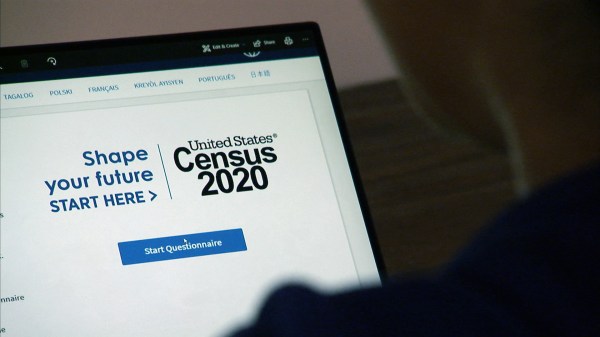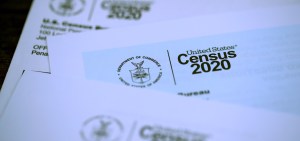Citizens use census data to Hack the Pay Gap
Based on median wage, an African American woman would have to work 42 minutes longer than a white man to afford a $12.50 lunch.
That’s just one fact people can learn through using a Google Chrome extension or interactive microsite called Raise Above the Wage, which uses data to help people experience the gender wage gap through a particular race and gender.
The product was one of seven presented at a White House demo day Tuesday to highlight the results of the Hack the Pay Gap initiative, a joint effort of the Presidential Innovation Fellows, the Commerce Department and the White House’s Council on Women and Girls.
Teams presented their work in front of Commerce Secretary Penny Pritzker and White House Chief Technology Officer Megan Smith, and received feedback from public- and private-sector experts, including representatives from tech companies Accenture and Google.
The goal of Hack the Pay Gap was to “open up troves of census data at the intersection of income and gender” to encourage citizens to build tools to close the gender pay gap, Smita Satiani, deputy director for the Presidential Innovation Fellows program, told FedScoop.
Participating teams in Hack the Pay Gap were diverse, from students and small startups to established companies.
“When you see the quality of the products that were produced I think it really speaks to you know the power of government and citizens collaborating in this way,” said Kyla Fullenwider, a 2016 PIF who worked on the initiative with Satiani.
The initiative builds around a Census Bureau website with an API and toolkit called MIDAAS — Making Income Data Accessible as a Service.
Some of the resulting Hack the Pay Gap products could eventually make their way on to this site, the fellows said.
But the tools could also be used in other ways — foundations and investors have already expressed interest in funding some of the projects.
As a third option, some teams have learned that their products marry well together, and they may decide to collaborate in the future, the fellows said.
“In today’s era of innovation and digitization, big data equips us with new tools to solve old problems,” Pritzker said in her prepared remarks at the event Tuesday. She also noted that beginning in 2017, businesses will be required to report income data by race, gender and ethnicity if they have more than 100 employees.
The tools created tackle everything from salary negotiation and the cost of goods based on wage inequality to how maternity leave affects the pay gap.
People shopping online can use the Raise Above the Wage Chrome extension, for example, to see the cost of an item adjusted for wage inequality.
“This does a really powerful job of making the pay gap real,” Fullenwider said.
Hack the Pay gap was announced in April, and since then, Satiani said, they have worked with 200 people across the nation to help them start building the products. When deciding how to tackle the issue of the gender wage gap, she said, the fellows wanted to make sure they did more than host a one-day event where people discussed the problem without developing solutions.
The role of the Presidential Innovation Fellows in the initiative, she said, was to “facilitate this intergovernmental and citizen collaboration.”
[Read more: Presidential Innovation Fellows want public to hack the pay gap]
Satiani and Fullenwider ultimately hope Hack the Pay Gap will help people realize that this isn’t just a women’s issue but an economic one.
“This is something the administration has prioritized from the very beginning,” Fullenwider said of the gender wage gap. “And this is just one more way of getting at it, one more way to tackle this kind of thorny issue.”






